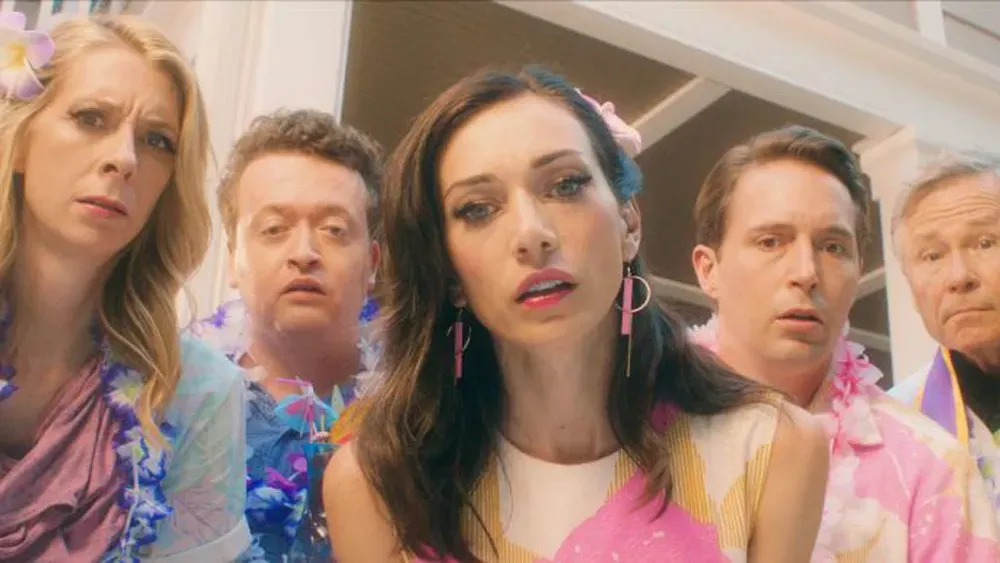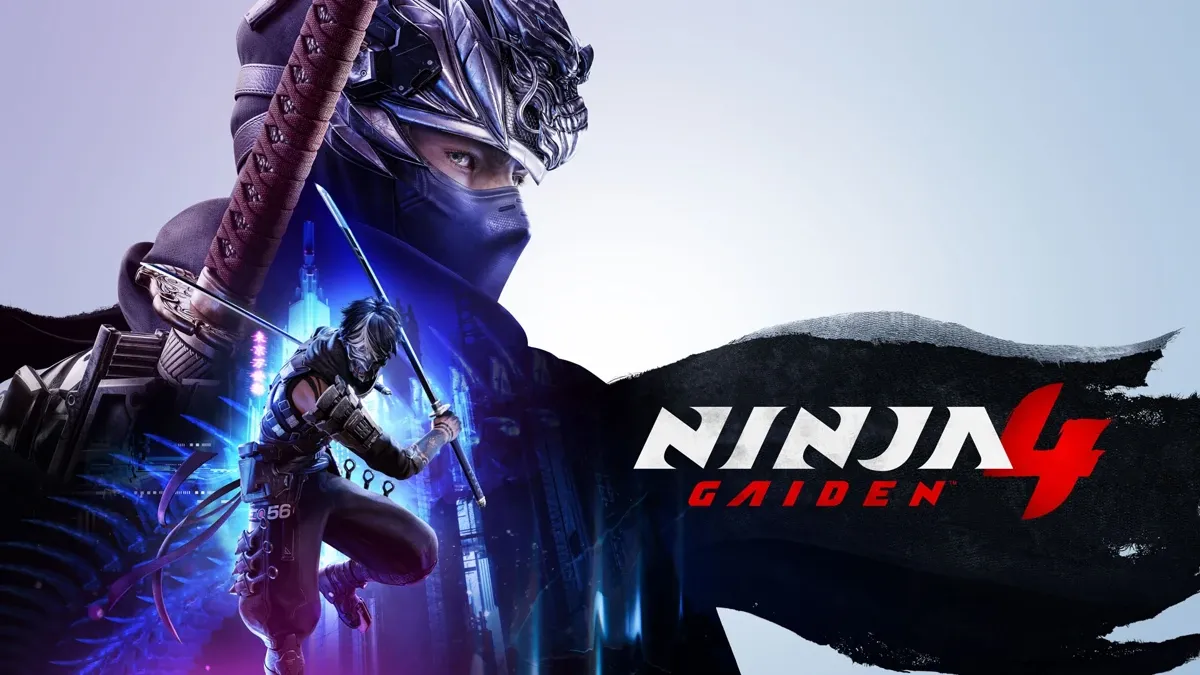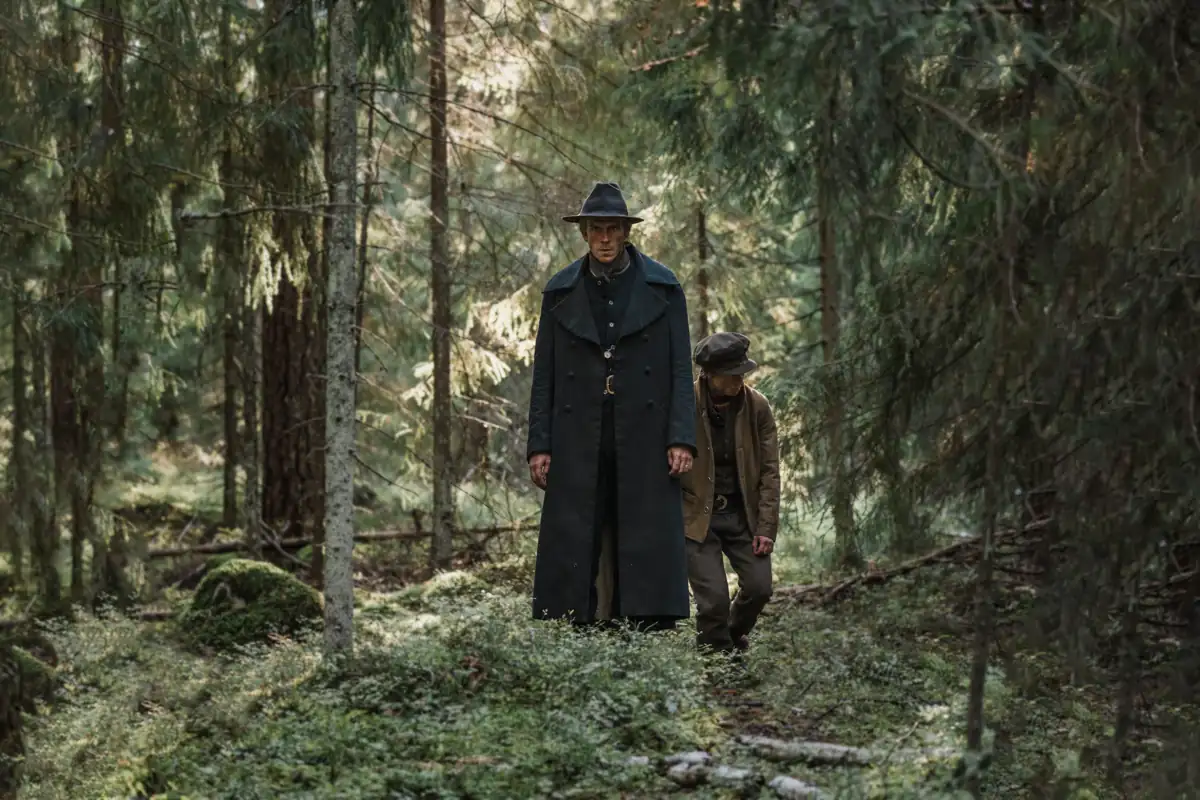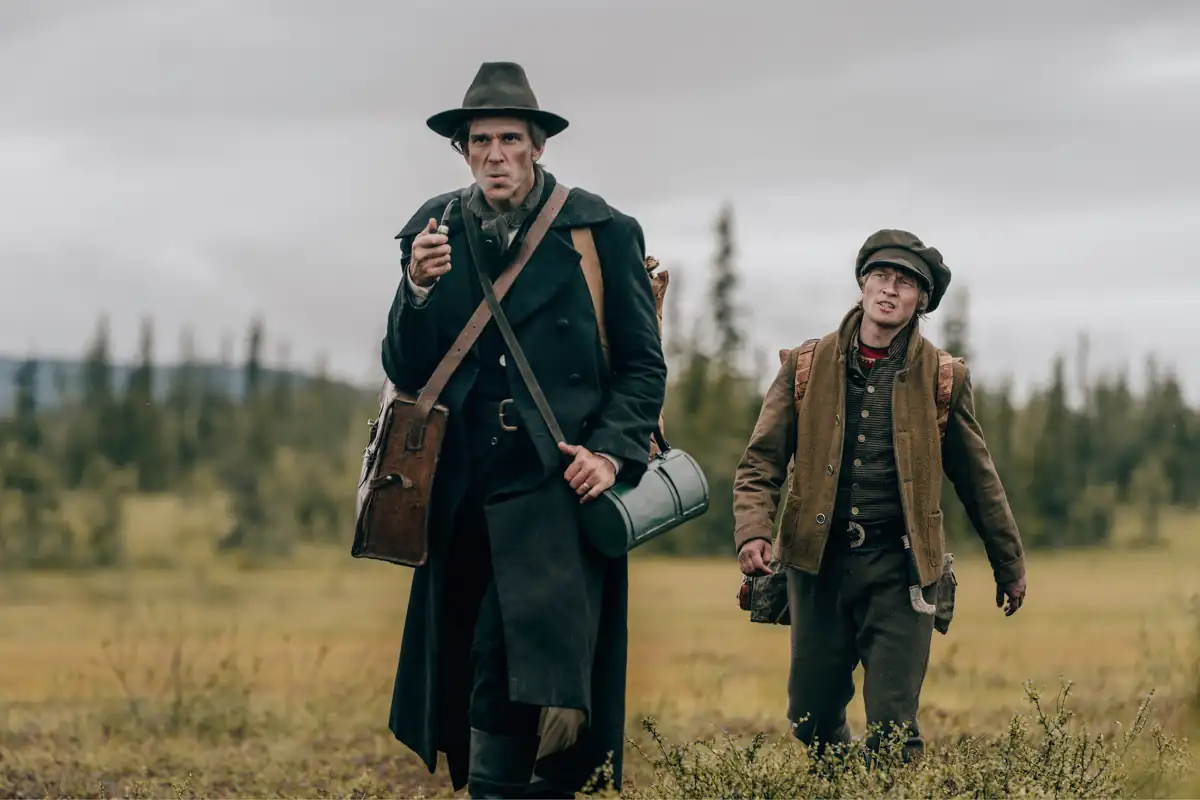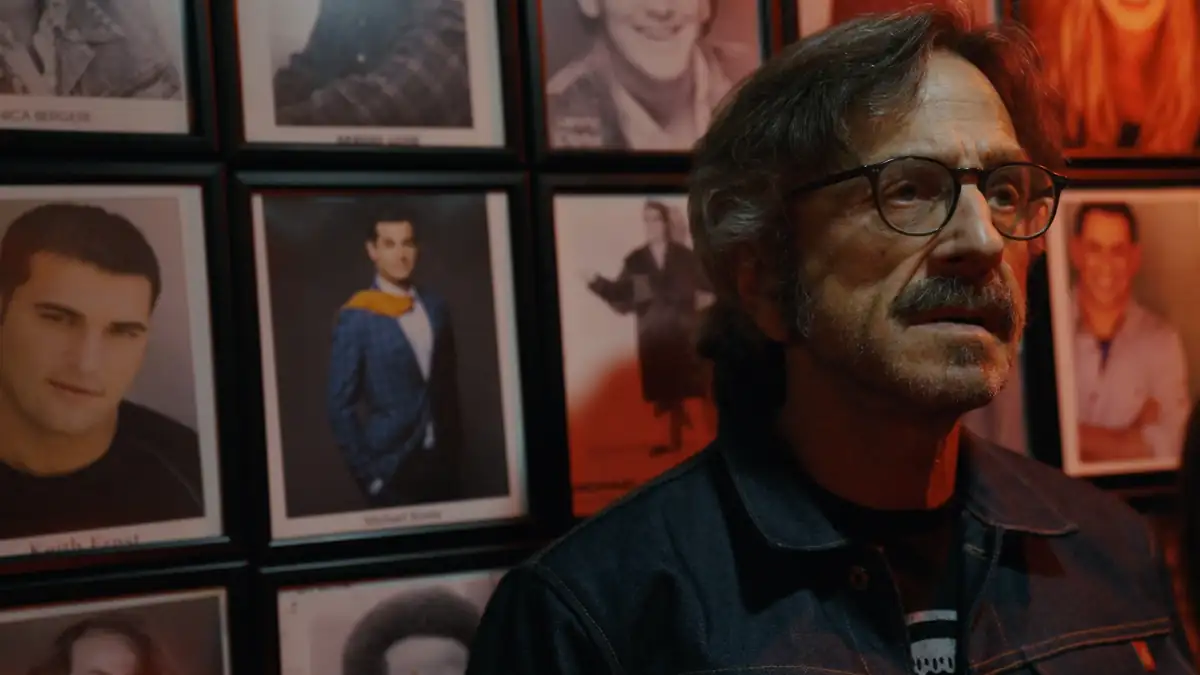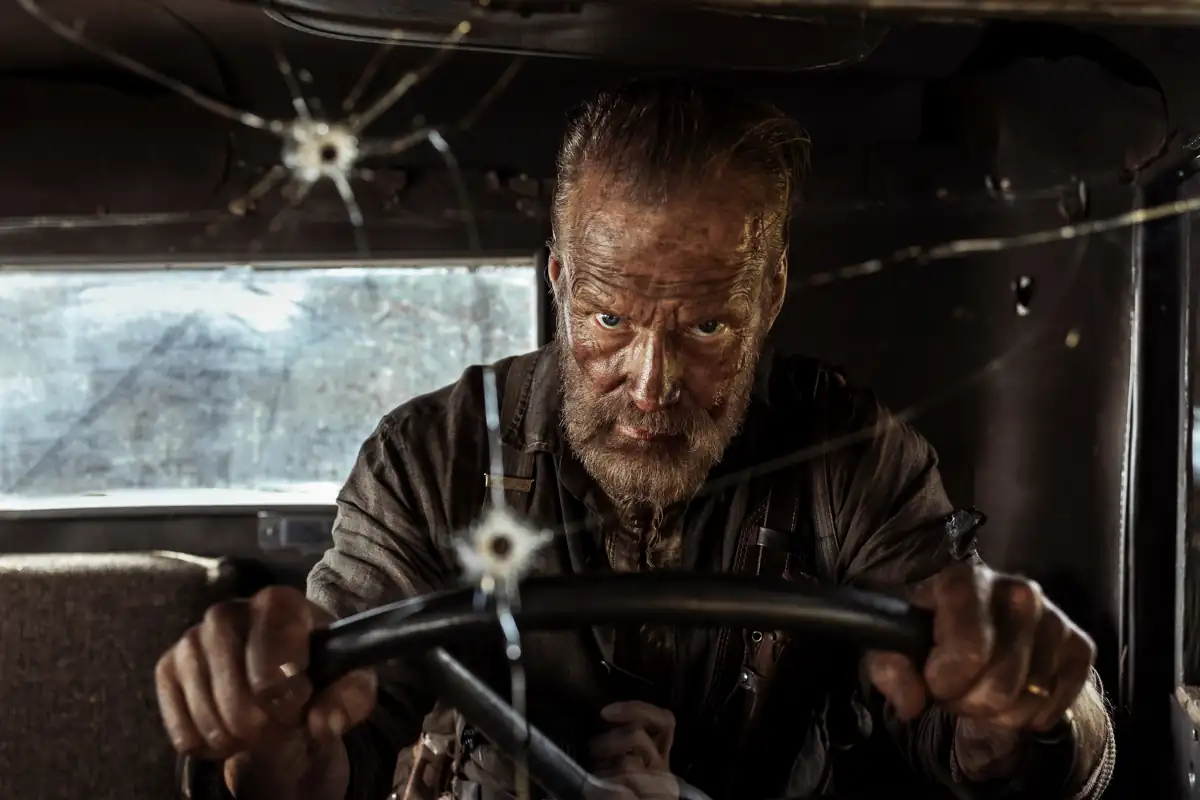GREENER GRASS is one of my favorite movies from this year’s Helsinki International Film Festival. Hilarious and terrifying at once, it’s a surprisingly poignant and touching satire about suburban life.
I had the great pleasure of speaking with Jocelyn DeBoer and Dawn Luebbe about golf cart cities, improving on improv, and casting dogs through Instagram.
There’s a lot of improv in this film, which must have taken a lot of planning. How many drafts did you go through?
Dawn Luebbe: It was 21 page-one rewrites. Though we do come from improv, we poured over every line and every word. But even then there were some moments of improvisation that did make it into the final movie. We were so lucky to work with so many great performers from the UCB. They each had at least a handful of improv moments. But there was a lot of meticulous rewriting.
Jocelyn DeBoer: I think that the techniques we learn at UCB are so deep in our bones as writers. The specific idea is you should follow something fun; so if we find ourselves laughing as we’re writing, we’ll follow that. They call it the game of the scene. In Greener Grass, many unusual things are going on, but we try and focus on only one so as not to be overwhelming. I’d like to think we’re sometimes successful with that.
Did you have favorite improv moments that made it into the film?
DL: Mary Holland, who plays Kim Ann, the red-headed friend, when Jill hands her the taco dip, and she goes: “Put it on the floor, just put it on the floor.” That was all Mary. We’ve seen the movie a gazillion times now, and it always makes me laugh.
JDB: Beck Bennett has so many great moments, but one little bit comes to mind. His character loves pool water, and in the restaurant, when the waiter tries to pour him water, he stops him and says, “I don’t drink that stuff.” It was just so subtle, but so deeply in character, that it makes us laugh when watching the movie.
The taco spill is what made it click for me that this is inspired by John Waters. Same way with the pool water – it’s innocuous, but when we see him at night, pouring it down his gullet, it just sends shivers down my spine.
DL: It can’t be good for you!
JDB: It was Beck’s first day on set, and we threw him in the pool in his pajamas to drink the water out in the cold. “Welcome to the set, Beck!”
You have to let the actors know their place.
DL: Exactly! When they misbehave, they get in the pool.
JDB: “We added a shot!”
I assume the opening shot, which is three minutes of a mouth smiling wide, wasn’t looped either?
JDB: That was Dawn directing my mouth. She made me do it way too many times.
DL: We had this apparatus, basically a bike helmet with a c-stand to keep her head steady because it was such a tight shot, and we did like four takes –
JDB: At least seven!
DL: I thought it was less.
JDB: Seven.
DL: I imagine Jocelyn was a bit stiff a few days afterward.
I love the dedication to a joke, where you keep doing something for so long that it goes from not being funny to being hysterical.
JDB: Ever since doing sketch together at UCB, we had this director Seth Reese, who now runs the room at Seth Meyers, and he was a big part in making us realize how funny that relentlessness could be. He would have us hold sketches where the audience would not laugh for a full minute, and we’d just keep going until they did. And that blew my mind; I was like: “Nothing is more fun!”
DL: He explained to us that there’s the rule of 3, and the rule of 27, doing something 27 times. It’s not funny times 1 to 26, but it’s hilarious that the 27th time is very funny.
What is your directing partnership like? There are not many duos out there, but there’s a great quote about how the Coen’s work: Joel writes Ethan paces. Is it the same way for you?
DL: We are always either together or on FaceTime, and it’s all day every day. Monday through Friday, 8 am until 5 pm. I’m not sure if it’s the fastest or most efficient way of working, but for us, it works, just doing everything together. Like when we’re writing, it’s a lot of spitballing and improvising.
JDB: We’re always interested in how other pairs work. There are not many, but now that the DGA allows it, we’ve seen more of them coming. So any time we meet a directing pair, we have to ask: “How do you guys do it?!”
But it’s so good we’re able to work together because we’re both midwestern middle children. I don’t know if you know the stereotype, but you do everything to get along.
As a middle child, I know the mediator role. The first child can’t do anything wrong; the last one is the baby; so the middle child gets everything poured on them.
DL: Exactly. I’m glad we’re speaking to another middle child!
JDB: Yes, we prefer only speaking to other middle children.
There really should be a support group.
JDB: Yes!
Is that a bunch of fake flowers in the background that keeps repeating?
JDB: Yes! It’s about 40 of the same fake flowers that just went from place to place.
DB: There were like three fake shrubs in the archives we kept putting in and out.
JDB: The woman who did our production design is Leigh Poindexter, a genius among us, we want on every project we ever do. She just brought so much, including so many fake flowers. When we tour with the festivals, we like watching it with audiences, and even after seeing it so many times, we’d notice things that Lee had put in just subtle things.
You know how Don makes the joke where everyone laughs for way too long, and he fancies himself a comedian? Leigh planted a VHS tape of “How to Learn Comedy” on the coffee table in Lisa’s house, which you just see in the background. We thought it was so funny to think that it’s just there as a detail that he’s been watching a video on how to tell jokes.
I kept wishing to have a pause button to read the notes and signs in the stores and classrooms.
JDB: One of the things I don’t think anyone has noticed is that Julien’s piano at the school is the same piano from Jill’s house. We only had one, and it mortified Leigh that it was at both the home and the school. It was because the school we were shooting at had a piano, but when we showed up, they had given it away! But we had Jill’s piano in the trunk, so Leigh made a poster on it that says, “This piano was donated by Jill’s family,” and there’s our family photo attached!
We just keep laughing at it because it’s unnecessary, but we love the attention to detail. It’s always fun for the audience to notice.
It reminds me of the Zucker-Abrams-Zucker mentality of putting in a joke or a gag every minute. It feels like such a richly dense comedy in terms of everything put into it.
JDB: Our biggest fear was always that Greener Grass would be boring. So in the writing room, we were struggling with the idea of how can you care about a woman who gives away her baby. We tried to be so diligent that there were layers people could find funny.
I think it works because of the delivery. Once you frame it that Jill is re-gifting her child I feel that people go with it.
DL: We always laugh when we’re at festival screenings and see people coming in a couple of minutes late. It must be so confusing for them!
JDB: Or the people who go to the bathroom right before my son turns into a dog!
You also managed to find the cutest golden retriever in the world and one who has no training whatsoever.
JDB: That was a seven-month-old puppy; he had no training at all!
DL: The dog needed to be the same age as the kid in the dog’s years. So it needed to be a one-year-old dog. We usually do everything equally, but that dog was Jocelyn’s doing 100%. We saw a bunch of trained dogs, and they just didn’t have the right look. I didn’t grow up with dogs and think they all look the same, but Jocelyn was adamant that we find the perfect one. So she scoured Instagram and the Atlanta area to find the ideal dog, and it was all her doing.
JDB: We found both the dog and the babies through Instagram. We had trouble finding the right age babies, and kind of ended up looking at portrait photographers in the area to find twins to play them. It was all so very strange.
You can probably tell from the way we’re talking that this wasn’t a big-budget movie. Greener Grass was a 19-day shoot in 17 locations for around half a million dollars.
I couldn’t tell. The art design and the cinematography give it a feel of an old serial.
JDB: We were so lucky to have Leigh and Lauren Oppelt, our creative team. Those two didn’t sleep through the entire shoot. They worked so hard. Lauren says that people don’t understand how you don’t need to have a big budget; you just need to put in the work. She found most of our clothes at Walmart and Goodwill but then sowed in pompoms and took time to make things match.
DL: Twilson, the soccer ball, had six coordinating outfits.
JDB: As did the dog!
Where did you film the movie? It’s like a weird parallel universe that feels like it’s made entirely of cul-de-sacs.
JDB: It is!
DL: It’s a suburb of Atlanta called Peachtree City. While we were there, we had many extras, housewives, who kept coming up to us saying, “This movie nails it, everyone here – not me – is like this.”
JDB: And they have a Facebook group called The Bubble.
Unironically?
JDB: Unironically! It’s like a planned community from the 50s, and they have a hundred miles of just paths for golf carts. They have tiny parking spots for them in front of schools and supermarkets! It’s not even for older people, but for young families to get around. It was insane that we found that place.
DL: The parking lot you see a couple of times that’s just filled with golf carts as far as you can see was the high school parking lot on a school day. That’s just how it looks.
I don’t think we have that many golf carts in Finland. I think they might be extinct.
JDB: (Mock horror) Oh no!
DL: You need to start a new trend.
Did the movie begin with a softer filter that went away as the film went on?
DL: I feel like you’re one of the few people who asked us that!
JDB: It’s also to parallel Jill’s clarity of her circumstances.
It makes sense because then you can see more of the artifice in the neighborhood.
JDB: We have to credit our DOP Lowell Meyer, he brought so many great ideas to build on the story, like that one.
Is there another project coming? You initially pitched GREENER GRASS as a TV show before, right?
JDB: We initially thought that the movie would take the TV show off the table, but it’s the question we keep getting asked the most! I can’t say we’re working on one, but that would be fun.
DL: We do have a plan, it’s in our calendars, that in 40 years we’ll get everyone together to make GOLDEN GRASS, a sequel where everyone is in retirement.
JDB: We’re writing another original movie right now that really should be done, but we keep restarting it. We have a couple of other projects. We’re attached to direct an exciting pilot; we’re working on a couple of other films, one that we’re directing and the other we’re executive producing. It’s a lot of waiting to see when we can get something started.
I do hear that Marvel is hiring a lot of indie directors.
(Both begin tossing their hair as they pose)
JDB: Really?
DL: Interesting!
Naturally, now we need Avengers in the style of Greener Grass.
JDB: Yes!
DL: Sign us up!
GREENER GRASS is playing at HIFF 2020.

